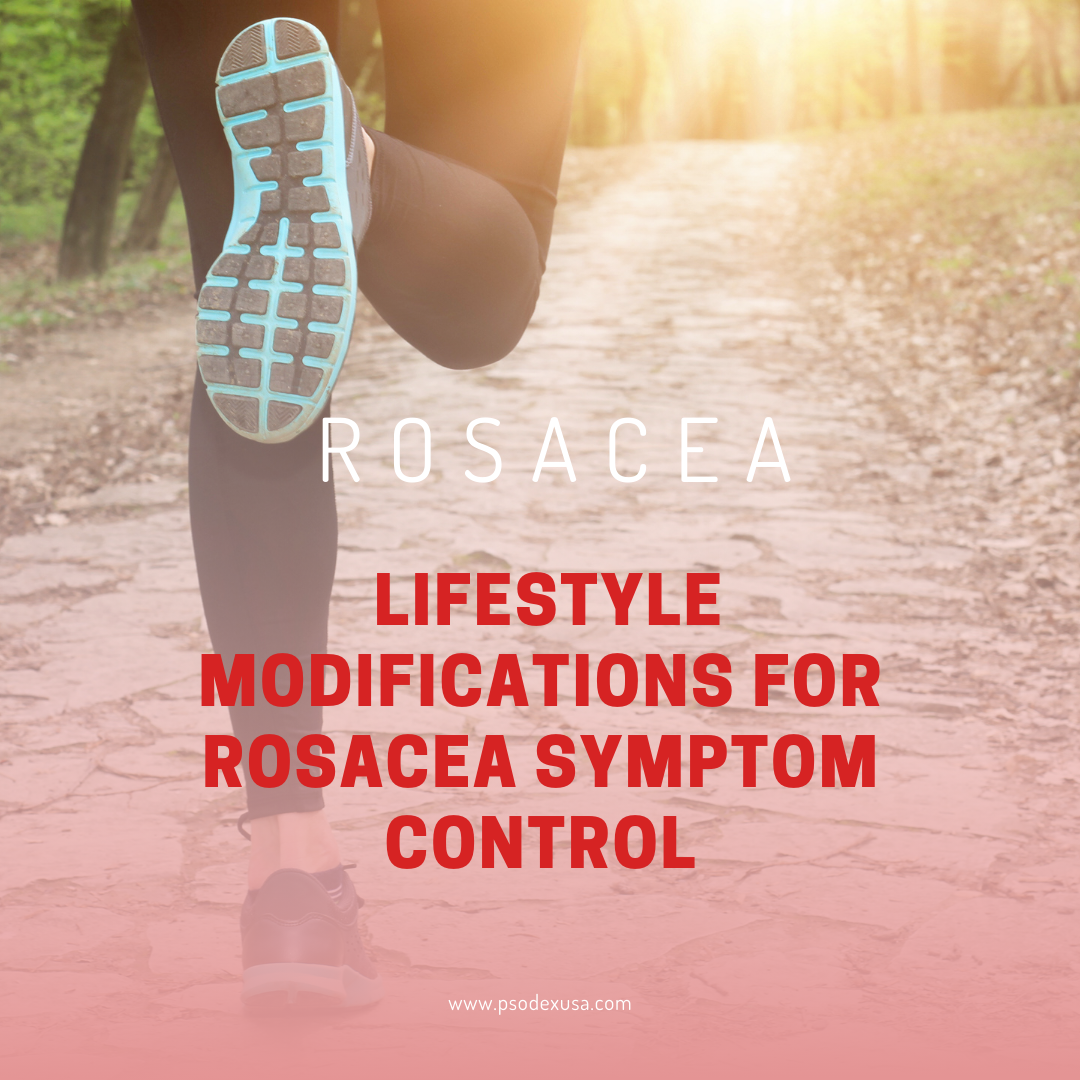Crafting Comfort: Lifestyle Modifications for Rosacea Symptom Control

Embarking on the journey to manage rosacea requires more than medical interventions. Lifestyle modifications play a pivotal role in minimizing symptoms and enhancing the overall well-being of individuals diagnosed with this chronic skin condition. In this guide, we explore the key lifestyle changes that can contribute to effective rosacea symptom control.
Rosacea Appeared: Managing Symptoms
Understanding Rosacea:
Rosacea, characterized by persistent facial redness, acne-like pimples, swelling, and visible blood vessels, demands a multifaceted approach to management. Lifestyle modifications complement medical interventions, offering individuals a proactive role in controlling their symptoms.
Sun Protection Strategies: Shielding Against Flares
Sun Exposure and Rosacea:
Sun exposure is a well-established trigger for rosacea flares. UV rays can exacerbate redness and inflammation. Incorporating sun protection strategies into daily routines, such as wearing broad-spectrum sunscreen and seeking shade, is crucial for minimizing the impact of the sun on sensitive skin.
Choosing the Right Sunscreen: A Rosacea-Friendly Approach
Sunscreen Selection Tips:
Not all sunscreens are created equal, especially for those with rosacea. Opting for mineral-based, fragrance-free, and broad-spectrum sunscreens provides effective protection without irritating sensitive skin. Regular application, particularly during peak sun hours, becomes a proactive defense against flare-ups.
Stress Management: Calming the Mind for Skin Harmony
The Stress-Rosacea Connection:
Stress is a common trigger for rosacea flares, emphasizing the intricate link between the mind and the skin. Adopting stress management techniques, such as mindfulness, meditation, or yoga, can contribute to a calmer mental state, potentially reducing the frequency of flare-ups.
Tailoring Skincare: A Gentle Touch for Sensitive Skin
Skincare Routine Essentials:
A skincare routine tailored to sensitive skin is fundamental for rosacea management. Choosing fragrance-free, hypoallergenic, and gentle products helps maintain skin health without triggering irritation. Consistent cleansing and moisturizing routines contribute to a soothing and supportive skincare regimen.
Identifying Personal Triggers: A Customized Approach
Personalized Insights:
While general triggers exist, each individual’s response to them can vary. Keeping a detailed record of activities, foods, and environmental factors preceding flare-ups can provide personalized insights. This self-awareness enables individuals to modify their routines effectively.
Rosacea and Diet: Nourishing the Skin from Within
Impact of Diet on Rosacea:
While not universally applicable, some individuals find dietary adjustments beneficial for rosacea management. Limiting spicy foods, hot beverages, and alcohol intake can contribute to minimizing flare-ups. Maintaining a food diary aids in identifying personal triggers and crafting a diet aligned with skin health.
Cool Showers and Gentle Cleansing: Temperature Matters
Skin-Friendly Hygiene Practices:
Rosacea-prone skin responds well to cool showers and gentle cleansing. Hot water can exacerbate redness and irritation, making cooler temperatures a preferable choice. Choosing mild, non-abrasive cleansers contributes to a gentle and skin-friendly hygiene routine.
Reducing Exposure to Harsh Elements: Wind and Cold
Weather Considerations:
Harsh weather conditions, including wind and cold, can aggravate rosacea symptoms. Wearing protective clothing, such as scarves or hats, shields the face from harsh elements. During extreme weather, adjusting skincare routines to include extra moisturizing provides an additional layer of protection.
Holistic Wellness: A Mind-Body Approach to Rosacea
Rosacea management extends beyond external factors. Adopting a holistic approach that considers overall wellness, including mental health and general well-being, contributes to a more resilient immune system and potentially reduces the impact of rosacea symptoms.
Empowering Rosacea Fighters
In conclusion, lifestyle modifications form an integral part of the holistic approach to rosacea management. From sun protection strategies and stress management to skincare tailored for sensitive skin, these modifications empower individuals to actively participate in their care. By understanding personal triggers, making dietary adjustments, and adopting gentle hygiene practices, rosacea warriors can take charge of their symptoms and embrace a lifestyle that supports clearer, healthier skin.
Helpful Links
National Rosacea Society: www.rosacea.org
American Academy of Dermatology Assocition: www.aad.org/public/diseases/rosacea
The Acne and Rosacea Society of Canada: www.rosaceahelp.ca
American Acne & Rosacea Society: acneandrosacea.org
Keywords
Rosacea, Rosacea treatment, Rosacea symptoms, Causes of rosacea, Rosacea skincare, Rosacea diet,Best rosacea cream,Natural remedies for rosacea, Rosacea beauty tips, Rosacea specialists in the USA, Living with rosacea, Rosacea support groups, Difference between rosacea and acne, Best products for rosacea, Rosacea sun protection, Rosacea treatment centers in the USA, Makeup tips for rosacea, Rosacea triggers and beverages, Rosacea skincare routine, At-home care for rosacea
